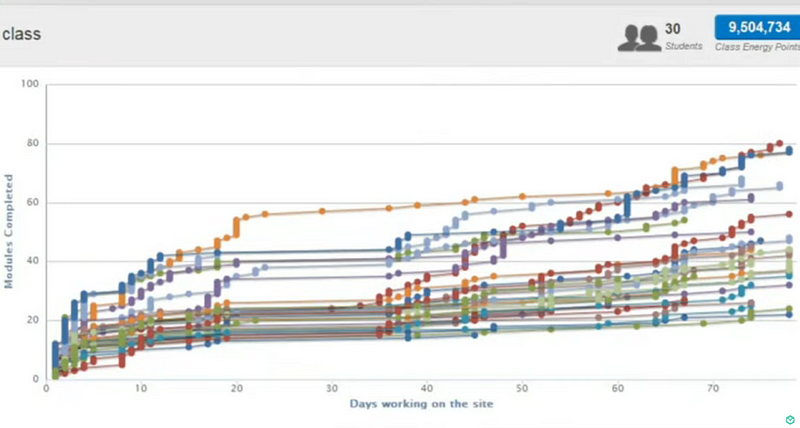Reimagining Regular Education: A Call for Change
Written on
Chapter 1: The Current State of Education
Have you ever felt that a specific subject was simply NOT for you? Many individuals have experienced this sentiment, particularly towards subjects like mathematics, languages, or social sciences. Each discipline may elicit similar feelings of frustration. Additionally, consider whether you've ever invested significant effort into a topic in school, only to find it irrelevant later in life. Such experiences raise questions about the purpose of our educational journey.
I believe it is crucial to rethink the concept of regular education. This article will first examine the obstacles present in today’s educational systems. Then, I will discuss some innovative solutions that show promise. Finally, I will share actionable steps we can all take to create a contemporary education system that aligns with our evolving society and technology. The goal is to ensure that future students are not faced with the same dilemmas that many of us have encountered.
How Does Traditional Education Function?
Traditional education typically involves grouping students by age into classes, where they are guided through a standardized curriculum. In this model, one teacher delivers information to a large group, resulting in varied levels of understanding among students. While some grasp concepts quickly, many do not achieve mastery of the subject matter. Subsequently, all students are required to take exams that gauge their understanding. Despite the disparity in grades, those who pass advance to higher classes, where they encounter even more complex material. It’s clear that there are significant flaws in this system.
What Are the Flaws in the Current Educational Model?
The assembly line approach to learning was intentionally devised during the industrial revolution, aimed at producing competent factory workers. While the industrial era has long passed, this outdated educational structure persists. The inertia of large systems makes them resistant to change, and the rationale seems to be that since the system works for some, it should remain intact. However, it is crucial to recognize that the educational framework has not evolved to meet the demands of our technologically advanced society.

Although our education system is proficient at measuring student knowledge, the progression structure poses a problem. For example, if Student A scores 60% and Student B scores 92%, both students are promoted despite their differing levels of comprehension. This leads to a lack of mastery in the subject matter. To illustrate this point, consider the analogy of constructing a building. If the foundation meets only 92% of the required standards, and each subsequent level is built upon that flawed base, the overall integrity of the structure is compromised. Yet, in education, we allow students to advance without rectifying their foundational gaps.
Reimagining Education for the Future
Now that we have identified several problems, let’s explore potential solutions. The current system fixes the time allocated to each subject and the amount of material to be learned within that timeframe, with test scores being the only variable. What if we shifted this paradigm? Imagine if we established a standard of 100% mastery and allowed students to take the time they need to achieve that level of understanding.
While some students may grasp concepts quickly, others may require more time. By prioritizing mastery, we can improve outcomes. Fortunately, a pilot project led by Khan Academy has already implemented this revised approach. The accompanying graph shows that while some students initially progress rapidly, others take longer but eventually accelerate once they overcome their learning hurdles. Unfortunately, the current education system does not provide additional support for struggling students, leading to the belief that they are simply not suited for certain subjects. This results in a loss of potential innovators and late bloomers.

When Am I Going to Use This in Real Life?
Do we really need to restrict the content that must be learned? Should subjects be treated as discrete categories? Real-world challenges rarely present themselves in neatly defined subjects. For instance, addressing transportation issues requires knowledge from various disciplines. I am currently exploring solutions centered around 'Problem-oriented learning,' where students engage with real-world questions and acquire the necessary interdisciplinary knowledge to address them. While my work in this area is still in its infancy, I hope to share meaningful insights in the future.
What Comes Next?
The data from Khan Academy referenced dates back to March 2013, and I’m writing this in December 2021. With a clear understanding of the shortcomings in our educational system and proven initiatives already underway, we must ask: what is holding us back? Ultimately, it boils down to our willingness to recognize the need for change. Each individual’s awareness and efforts, no matter how small, can lead to significant transformations in global systems. With the internet as a powerful tool, we can harness collective contributions to drive a worldwide reform in education.
How do you envision contributing to the reimagining of regular education?
I hope this article has resonated with you. If you found it valuable, consider supporting my work by clapping, following, or subscribing.
Further readings you may find intriguing include "Is There Any Such Thing As A Stupid Question?" and "How To Create Good Value?"
You can read the original essay here.
Chapter 2: Inspiring Change Through Innovation
In the journey to rethink education, we can draw inspiration from thought leaders in the field.
The first video, "Sir Ken Robinson: 'Reimagine Learning that Can Change the World'," discusses the need for a transformative approach to education that fosters creativity and innovation.
The second video, "It's Time to Reimagine Inclusion," emphasizes the importance of inclusivity in educational practices, ensuring that every student has the opportunity to thrive.